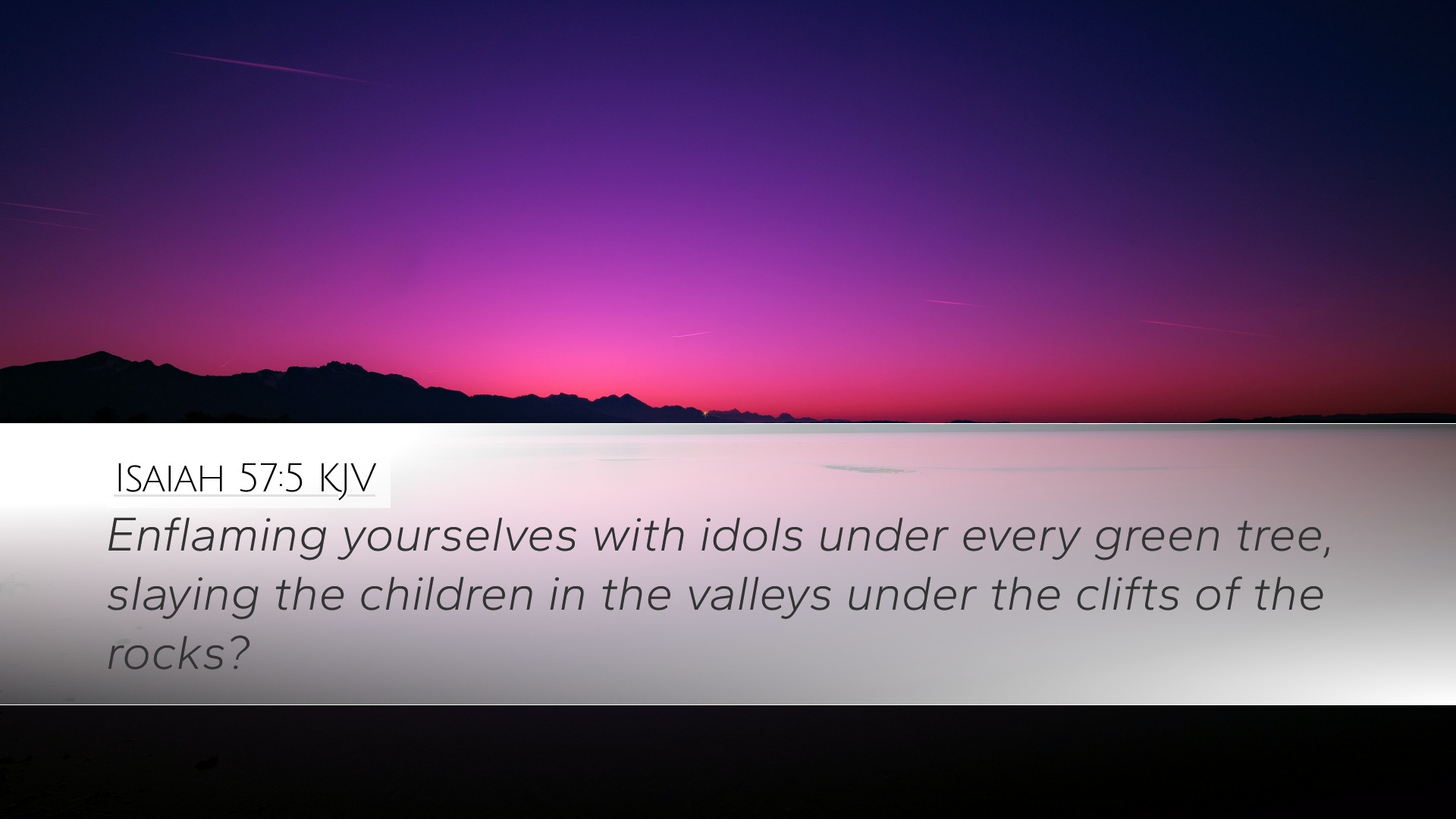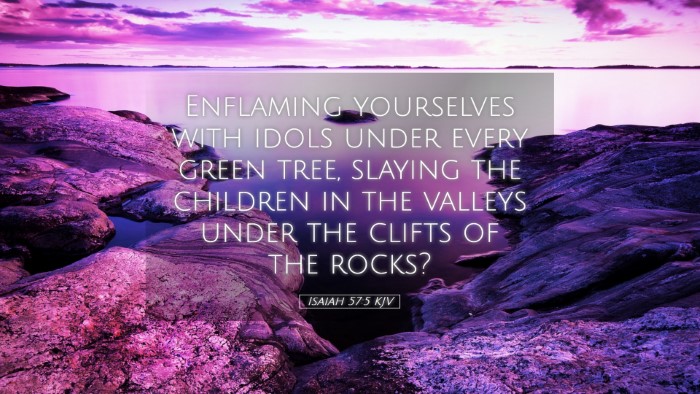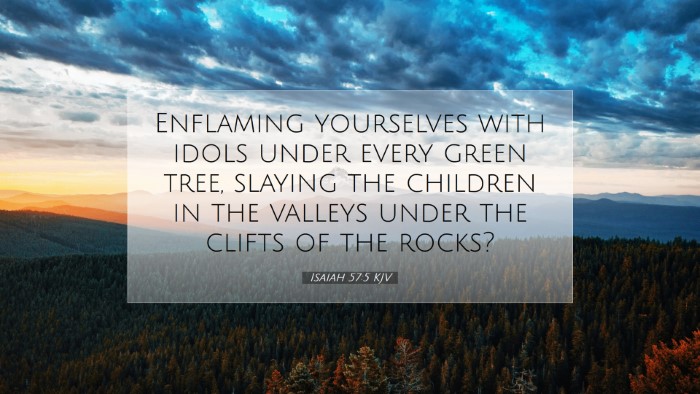Commentary on Isaiah 57:5
Bible Verse: "Inflaming yourselves with idols under every green tree, slaying the children in the valleys under the cliffs of the rocks."
Introduction
This verse from the prophecy of Isaiah addresses the rampant idolatry and the deeply immoral practices that were common among the people of Israel. In this commentary, we will explore the insights derived from the works of noted commentators like Matthew Henry, Albert Barnes, and Adam Clarke, focusing on the implications of this verse for modern readers, particularly pastors, students, and theologians.
Contextual Analysis
The context of Isaiah 57 is significant. In the preceding chapters, the prophet speaks against Israel's backsliding and the consequences of their covenant unfaithfulness. The nation had turned to false gods and participated in abhorrent practices that grieved the heart of God. The specific reference to worship "under every green tree" signifies a common practice of pagan worship prevalent in ancient Israel, reflecting a departure from true worship.
Matthew Henry’s Insights
Matthew Henry extensively discusses the dangers of idolatry in his commentary. He highlights that the phrase "inflaming yourselves with idols" denotes a passionate and excessive pursuit of false gods, which leads to spiritual and moral corruption.
- Idolatrous Actions: Henry notes that such practices were not only commonly accepted but eagerly embraced, showcasing how deeply entrenched idolatry was in the societal fabric.
- Child Sacrifice: The reference to "slaying the children" brings attention to the horrific practice of child sacrifice in worship routines. This serves as a stark reminder of the moral degradation that accompanies turning away from God.
Albert Barnes’ Commentary
Albert Barnes provides a detailed exposition on the text, emphasizing the consequences of idolatry. He describes the actions of the people as both defiant and deliberate.
- Covenant Violation: Barnes points out that these actions were a violation of the covenant established by God with Israel. He underscores that idolatry was not merely a personal sin but a communal affront to God's holiness.
- Judgment and Warning: He further interprets this verse as a prelude to the judgement awaiting those who participate in such acts. Barnes calls attention to the repeated warnings throughout scripture regarding the consequences of turning from the Lord.
Adam Clarke’s Perspective
Adam Clarke provides a theological analysis that connects the historical context with spiritual implications.
- Symbolism of Green Trees: Clarke notes that the mention of "every green tree" symbolizes the allure of sin and the deceptive beauty of idolatrous practices. He argues that the apparent fertility and life associated with these sites mask the spiritual death they bring.
- Social Implications: Clarke also stresses the grave social implications of these actions, highlighting that sacrificing children was indicative of a broader societal decay where the most innocent and vulnerable were offered to false gods for personal gain.
Spiritual Significance
For pastors and theologians today, Isaiah 57:5 serves as a poignant reminder of the dangers of modern idolatry, which may not always involve physical idols but can manifest in materialism, self-worship, or cultural absolutes that replace God.
- Reflection on Modern Idols: This verse encourages believers to reflect on what they may be inflaming themselves with in contemporary society, whether it be ambition, wealth, or distractions that lead away from God.
- Call to Sacrifice: The notion of child sacrifice prompts a serious consideration of how modern practices might harm the next generation, calling for a recommitment to protect and nurture rather than destroy.
Conclusion
Isaiah 57:5 echoes through the ages, offering a stark warning against the perils of idolatry and moral compromise. The insights provided by Matthew Henry, Albert Barnes, and Adam Clarke enrich our understanding of this verse, challenging us to examine our lives and communities critically. As we heed these ancient warnings, may we foster a genuine worship of God that reflects our commitment to His ways and the well-being of those entrusted to our care.
References for Further Study
- Henry, Matthew. Matthew Henry's Commentary on the Whole Bible.
- Barnes, Albert. Barnes' Notes on the Bible.
- Clarke, Adam. Adam Clarke's Commentary on the Bible.


